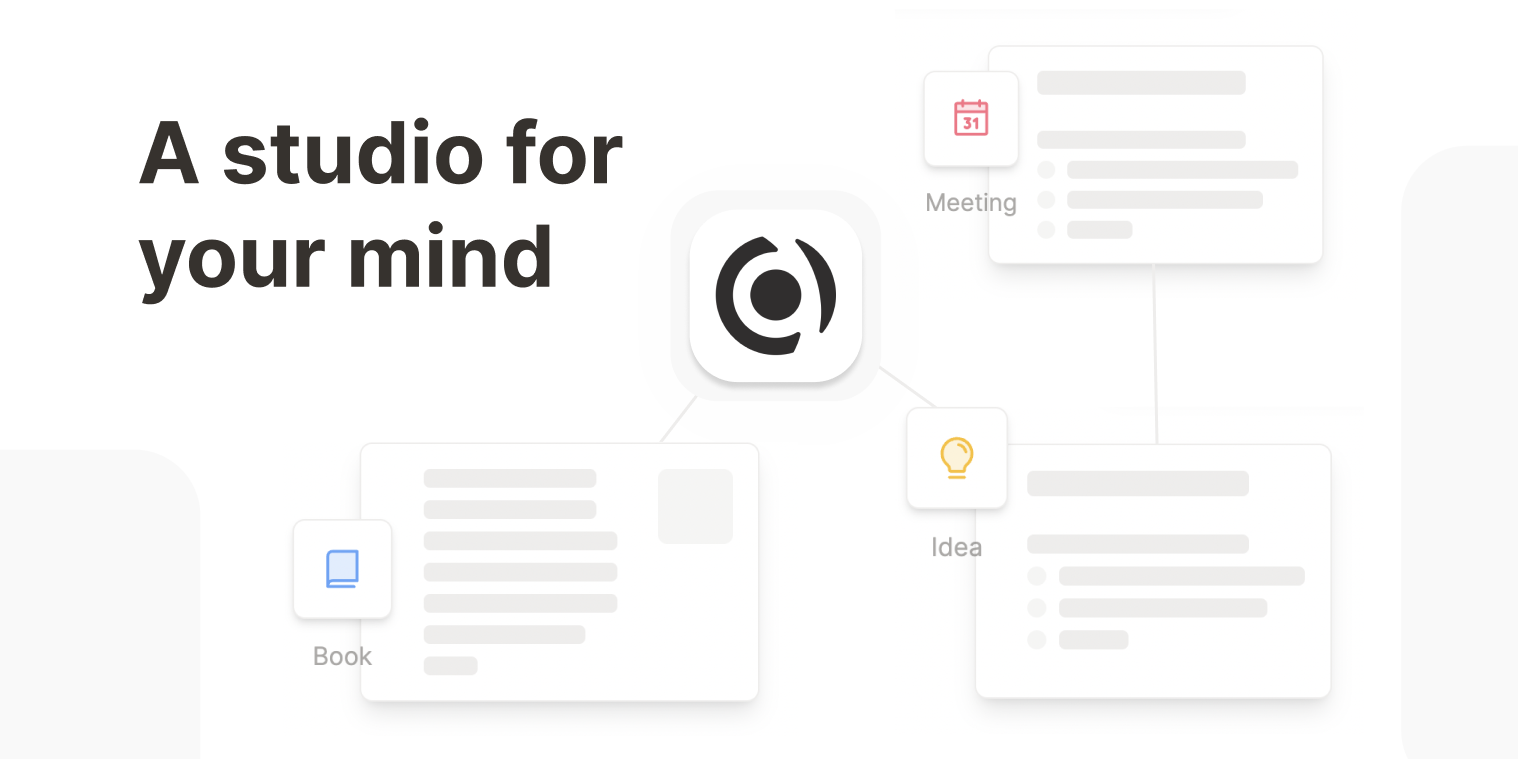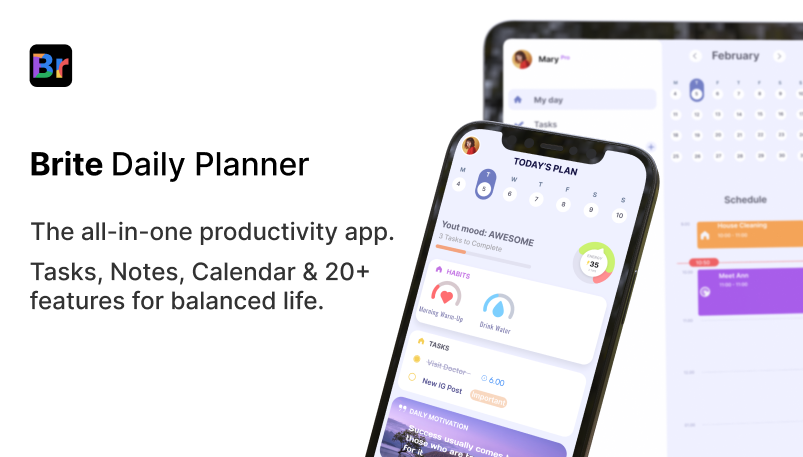The realm of Personal Knowledge Management (PKM) is a dynamic, ever-evolving space that offers a multitude of tools and applications designed to help us become more efficient knowledge workers. Amidst the crowd of applications, there emerges a potential game-changer: Capacities.io. In this blog post, I will share my experience with Capacities.io, highlighting its features and how it has transformed my PKM journey.
Understanding PKM: From Capture to Creation
Before diving into the specifics of Capacities.io, let's briefly revisit the concept of PKM. In its simplest form, PKM is a system where we can capture, organize, review, and create knowledge. It's a system that transforms the way we handle information, making it more digestible, accessible, and useful. To put it succinctly, PKM is a system that bridges the gap from capture to creation.
Capacities.io: A New Entrant in the PKM Space
Capacities.io is a relatively new entrant in the PKM space that has already started making waves due to its robust feature set and user-friendly interface. The application offers a unique blend of features that makes it an ideal candidate for a comprehensive PKM system. Here, I will focus on the top three features that make Capacities.io stand out: Daily Notes, Objects, and Integrations.
Daily Notes: The Foundation of the System
Daily notes form the backbone of my PKM system. Inspired by Reflect and Tana, I have come to value this feature as a must-have in any note-taking system. Capacities.io excels in this area by offering a folder-less organization structure for notes and a dedicated sidebar for daily notes.
In Capacities.io, daily notes serve as a whiteboard for the day, housing all critical project updates and keynotes. I typically use a simple template for my daily notes, including three tasks, notes, and a highlight of the day section. This approach brings a sense of structure to my day and keeps me focused.
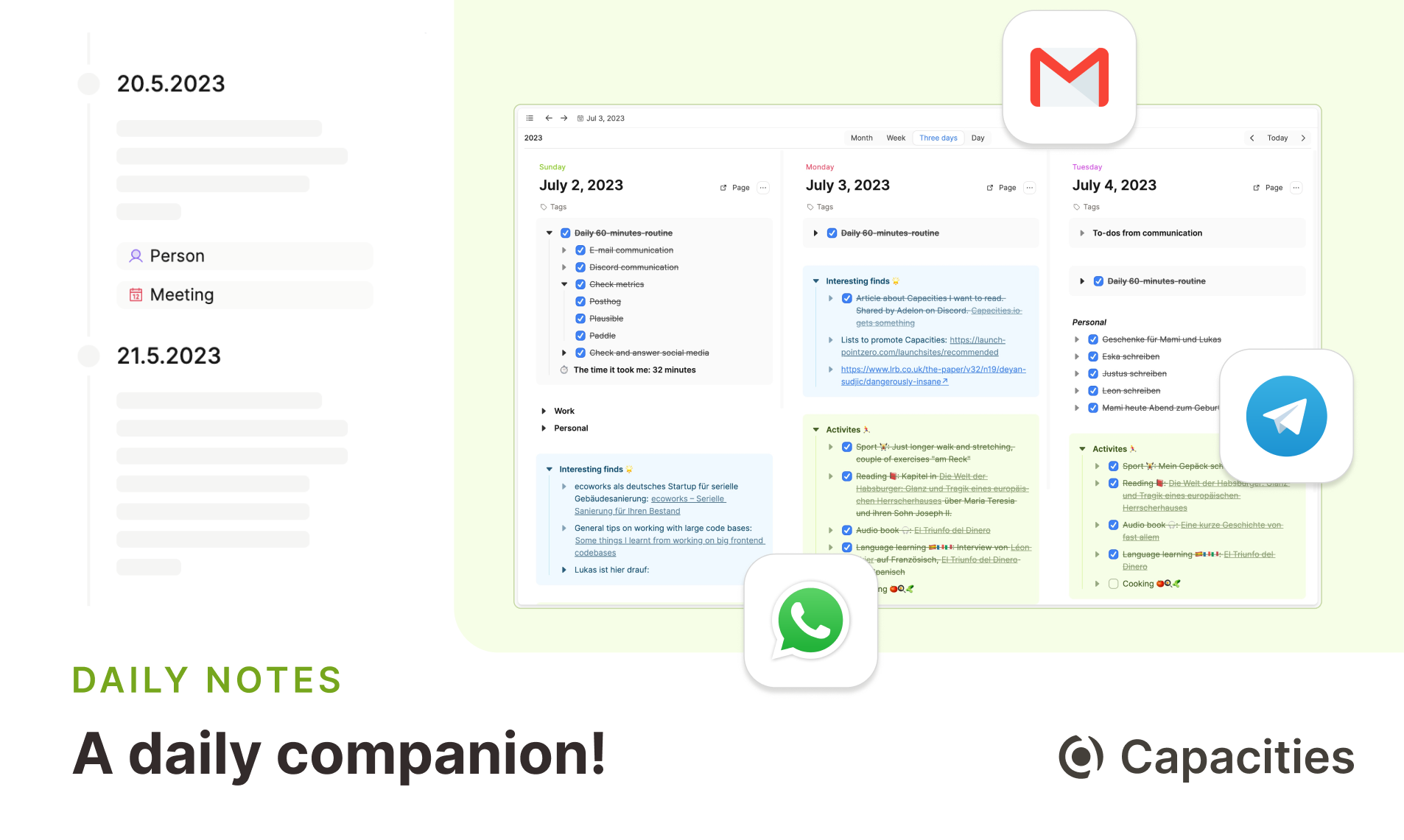
Objects: The Superpower of Capacities.io
One of the unique features of Capacities.io is its Objects. Objects in Capacities.io can be likened to structures for your notes or the way you organize your content. You can create a variety of Objects, including Persons, Meetings, Projects, PDFs, Zettels, and Daily Notes, each customizable with specific properties.
For instance, a Project Object can have properties like Project Name, Starting Date, Tag (representing the Type of Industry & Engineer), Status, and Potential Class. This level of customization makes Capacities.io highly flexible and adaptable to individual PKM needs.
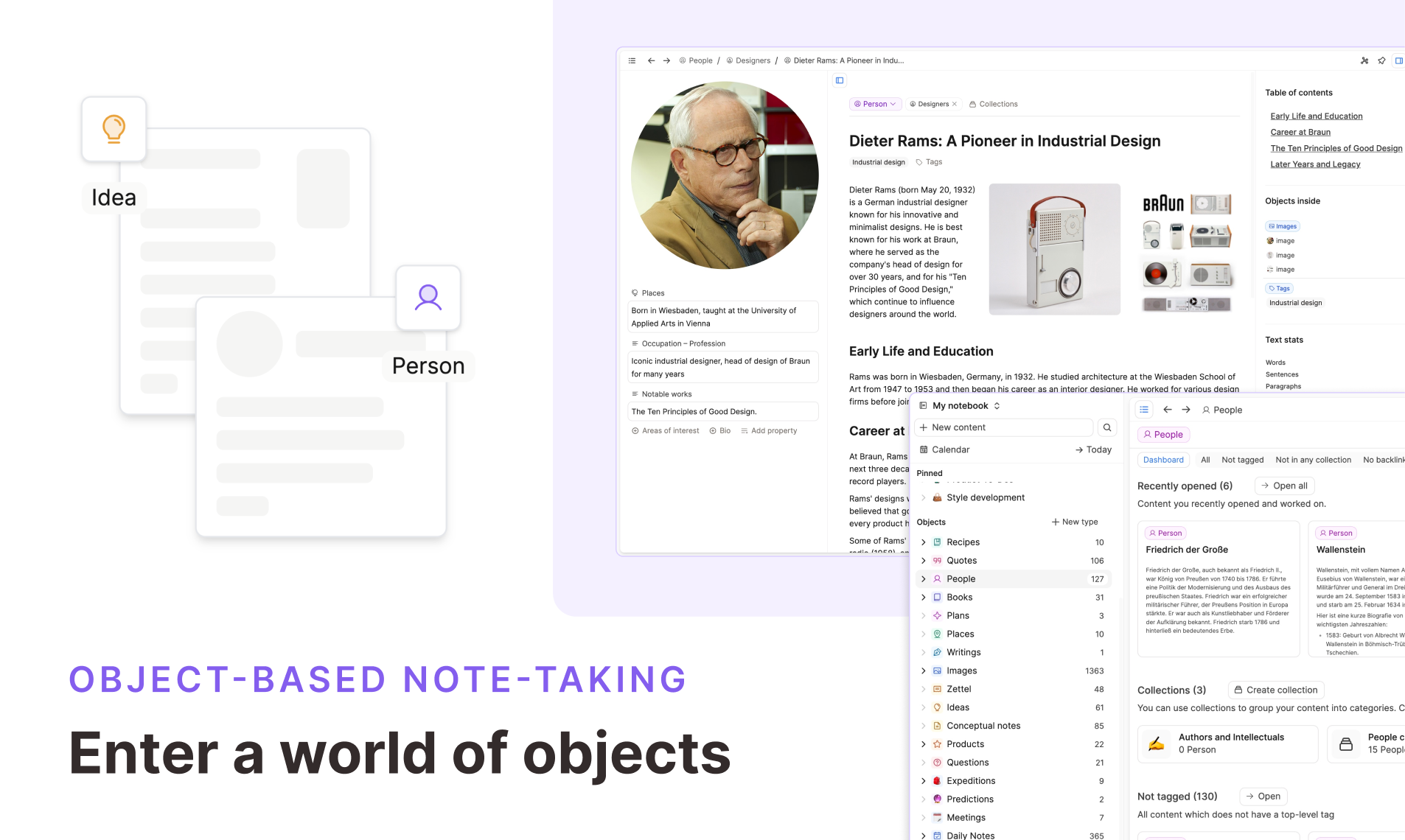
Integrations: Bridging the Gap between Planning and Execution
A distinct advantage of Capacities.io is its ability to integrate with other productivity tools, such as Todoist. This integration allows you to directly send tasks from your projects in Capacities.io to Todoist, streamlining the planning and execution process. Additionally, Capacities.io also offers integrations with Email, WhatsApp, and Telegram, enabling you to make the most of your knowledge system.
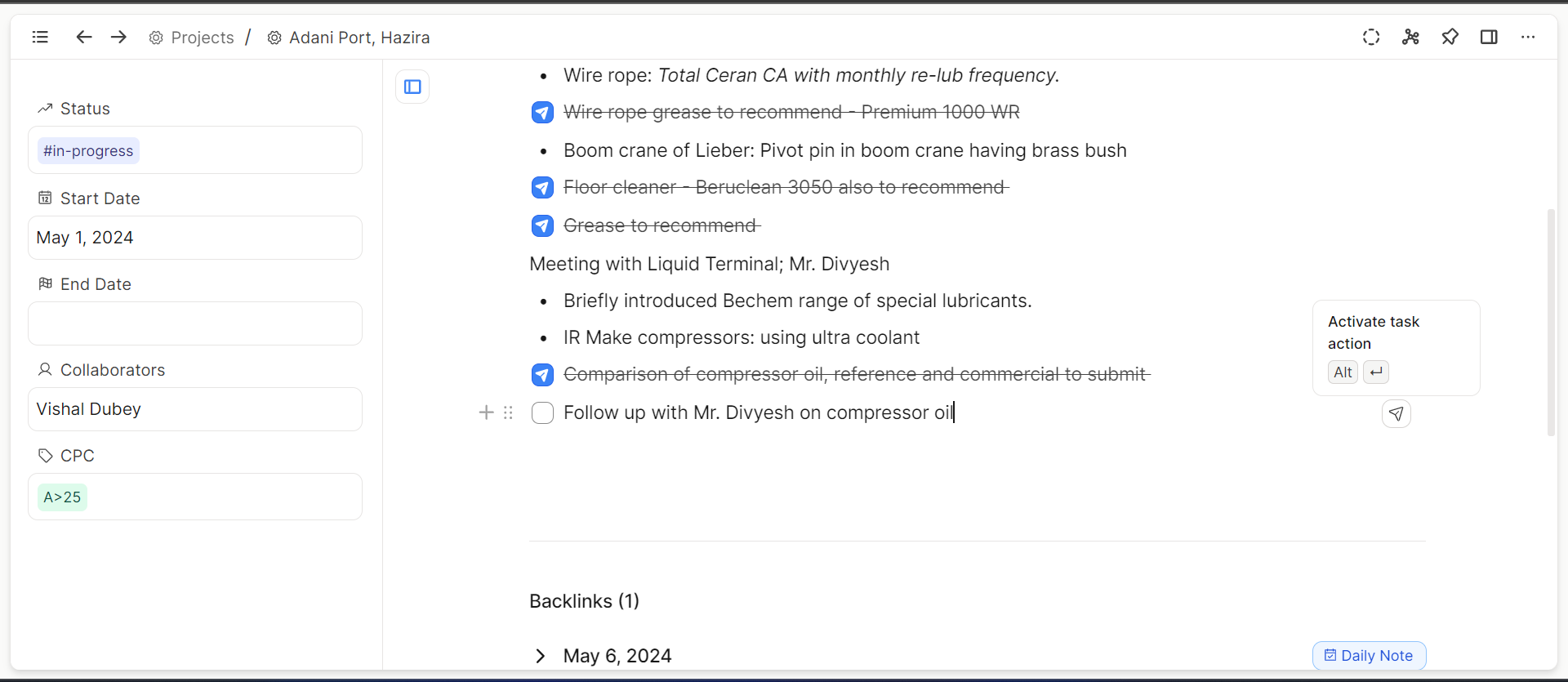
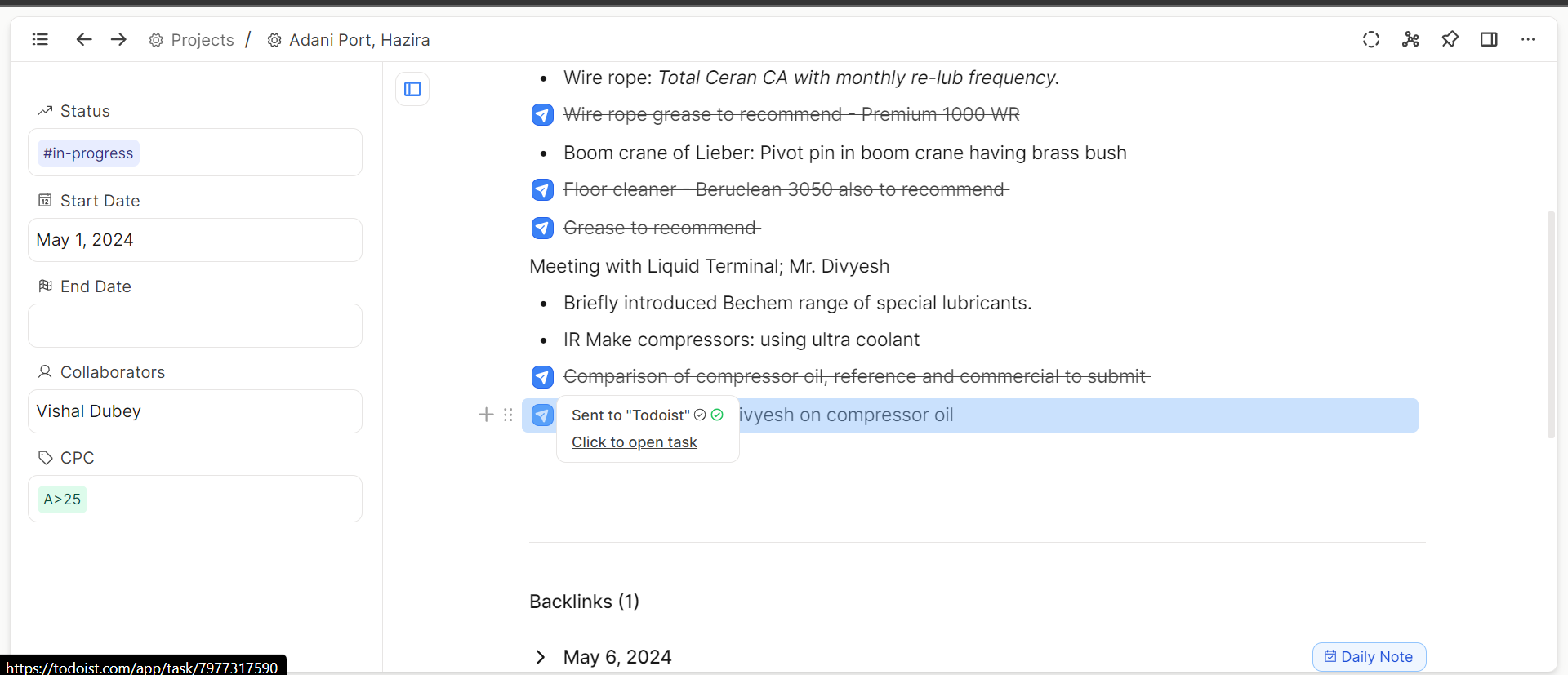
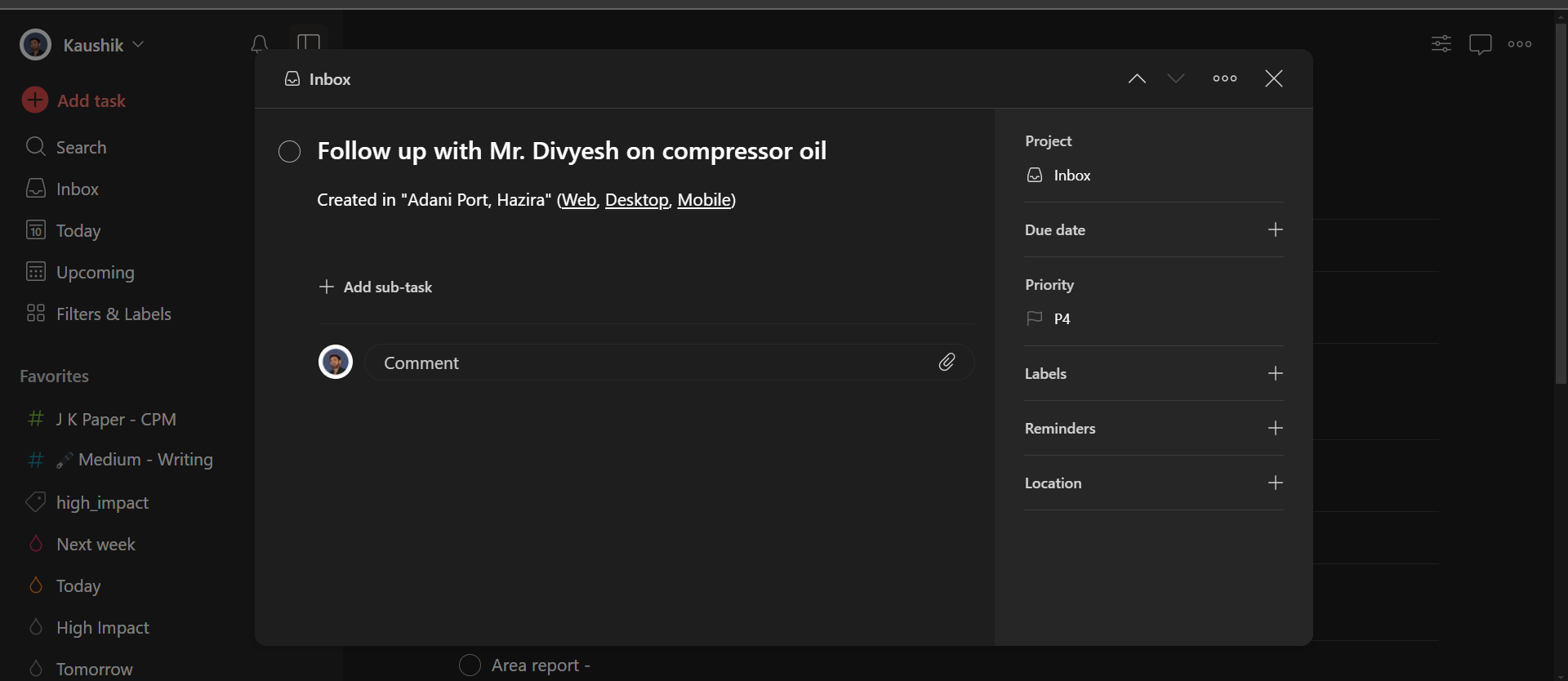
Future Prospects: Areas for Improvement
While Capacities.io has a robust feature set that makes it a strong contender in the PKM space, there are areas where future development is needed. A dedicated native app (preferably for iOS) would be a welcome addition, catering to the growing population of mobile users. Additionally, more powerful tables and databases could significantly enhance the user experience.
Final Thoughts
In conclusion, Capacities.io is a potentially transformative tool in the PKM arena. Its unique blend of features coupled with its user-friendly interface makes it a promising candidate for your PKM system. While there are areas for improvement, the current offerings of Capacities.io are impressive and warrant further exploration.
I encourage you to give Capacities.io a try and experience its potential firsthand. As we continue to navigate the dynamic world of PKM, tools like Capacities.io are instrumental in our journey towards becoming more efficient and effective knowledge workers.
Thank you for reading.
Keep reading, keep sharing.
Astu.
